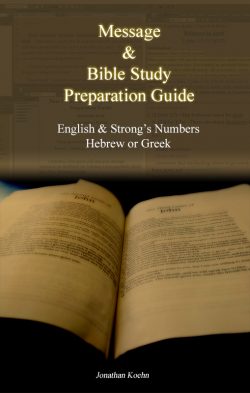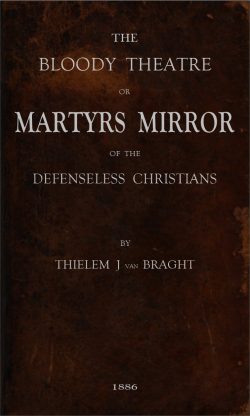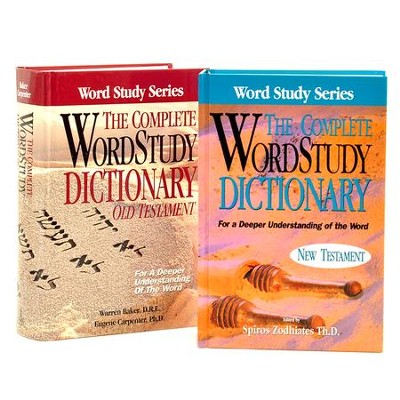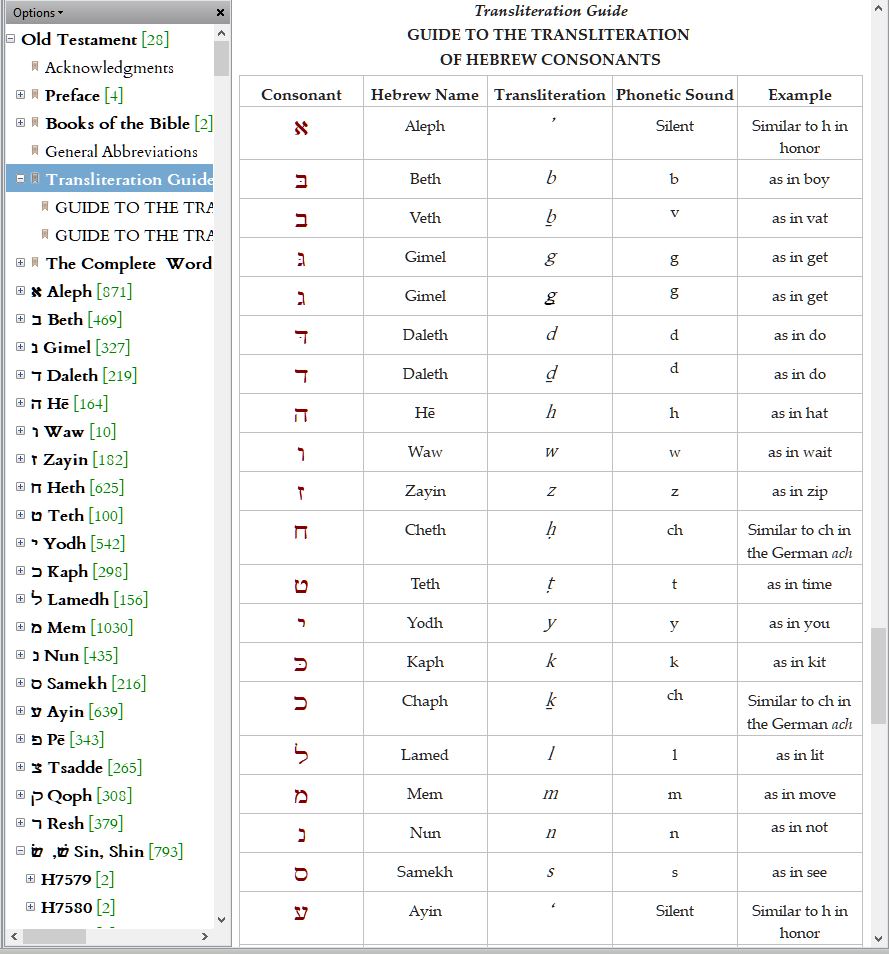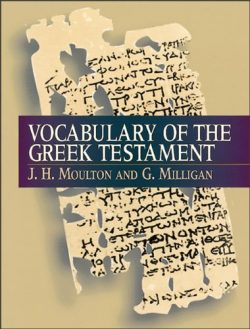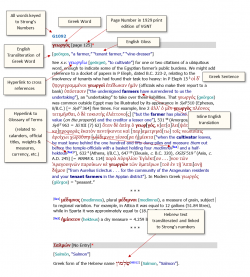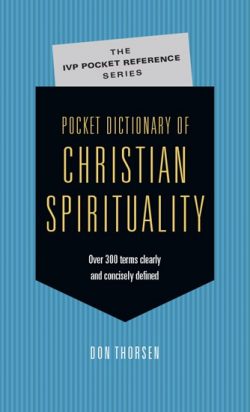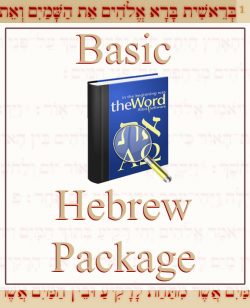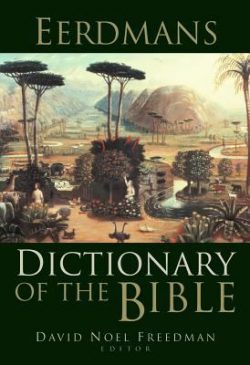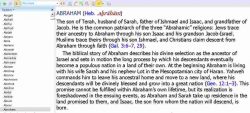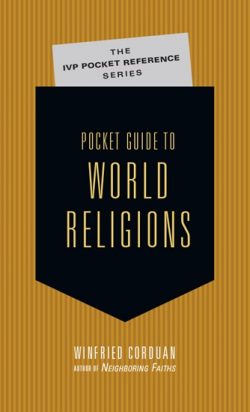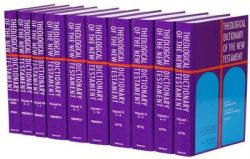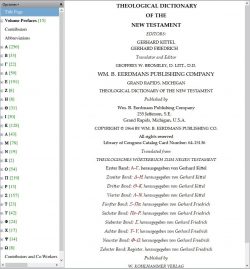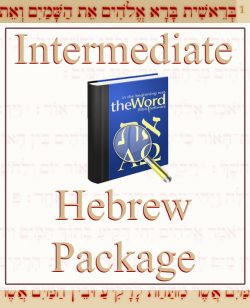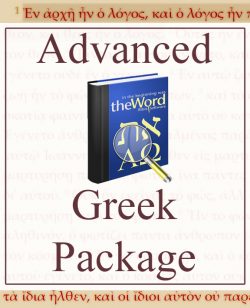DDT Review of
The Complete Word Study Dictionary (2 Vols)
by Warren Baker (OT) & Spiros Zodhiates (NT)FAST FACTS
Page Number: 3,600+
Author Theology: Conservative
Bible Text: Heb/Grk/KJV (certainly usable with all English Texts)INTRODUCTION
The beauty of Bible software is that real world works can be easily combined. That is true here. Each of these volumes is good alone. Together? They are a conservative’s trustworthy resource on biblical original languages.
Here is the short of it. This is a productive module that will help you understand your Bible.
The long of it? Read on, TW friend!
REVIEW
There are three aspects of this work the reader will want to know about.
First, you can click on any Hebrew word and find a simple (mostly one paragraph), conservative root definition that will help to understand each passage at hand. Occasionally, entries are longer (two-five paragraphs), but this is not common. NOTE: because of the idiosyncracies of TW’s fuzzy logic, if you want a Hebrew word definition, it is best to use a Hebrew Bible (like TW’s free HiSB module), or to make sure your Strong’s numbers are visible for the English Bible in the Bible pane. I like to keep the Strong’s numbers hidden, and just click the English word to get Strong’s definitions (an option inside the “Bible View options” area). The Complete Word Study Dictionary didn’t like that very much.
Second, you can click on any Greek word and find a nice article that will help to understand each passage at hand. The New Testament definitions are much more detailed than the OT definitions. Again, I find it easier to use either a Greek text of the NT (like the TRa, a TW freebie), or simply to keep the Strong’s numbers visible in the English text of the Bible pane (which I’d rather not, but that’s just me).
Just before I mention the third aspect, let me insert here that glosses (possible ways to translate the root words) for the Hebrew and Greek roots are not included. That is a curiously missing aspect for these entries.Third – and this is a blessing and a problem at the same time – you get a nice (or problematic, depending on your point of view) “Translational Reference Index” for all of the New Testament English words of the KJV (please note that the clickability for this part of the module works with any English text, but the words included are KJV words).
THE BLESSING: click on a word, say “righteous” from Rom 5:7, and you get the English entry “rightesous -ly -ness”, along with all the Greek words used with those English words. In this case, those Greek entries are “G1341, G1342, G1343, G1344, G1345, G1346, G2118.” Hover over each of them, and see their entry. Click any of them, and go directly to that entry. Nice.
THE PROBLEMS: There are two problems with this feature. One of them is that the fuzzy logic that TW uses is inconsistent. As an example, while clicking on “righteous” from Rom 5:7 pleasantly found the “rightoues -ly -ness” entry, clicking on “righteousness” in Rom 3:21 did not find the entry. And unfortunately, that is not a rare occurrence. It does a good job of finding roots (“righteous”), but when prefixes and suffixes get added, then, well, maybe….
A second problem has to do with the Bible view options. Buried deep in the Bible options is “word click options” which has to do with the order of dictionary appearances on word clicks. Now please understand that this is a powerful feature. But also understand that only one option can ultimately get first place. Do you want a Greek word to show up first? Fine. English? That’s fine too, but that will affect how this module works. A little experimentation with this deep option feature will be needed to make the module perform how you want it to perform.
A FIRST SUMMATION: This module does exactly what you think it should do, once you understand the idiosyncrasies, and decide to use the HiSB and TRa. When those interlinears are turned on (or you can click directly on the Strong’s numbers themselves), The Complete Word Study Dictionary really shines. Conservative; trustworthy. This certainly is a “DDT Approved” study module!
*****
Do you hear a “but” coming? Yeah. There’s more to the story. Because while this premium module is great all by itself, it really needs to be compared to some of the free modules available, as well as some of the other premium modules already available. If you aren’t interested in the comparison, stop here. If so, keep reading.
WHEN COMPARED TO THE FREEBIES
As far as the Hebrew dictionary goes, The Complete Word Study Dictionary is better than the BDB module. It is not better than the u-BDB (available through a third party repository via TW); different yes, better, no.
But the Greek? The Complete Word Study Dictionary is better than any of the free resources I looked at (Thayer, Moulton/Milligan, etc.).
WHEN COMPARED TO OTHER PREMIUM DICTIONARIES
The TWOT Hebrew dictionary is considered the standard Hebrew introductory work. It is better than The Complete Word Study Dictionary.
The TDNTa Greek dictionary is considered the standard Greek introductory work. It is better than The Complete Word Study Dictionary.
SECOND SUMMATION.
The main reason to consider The Complete Word Study Dictionary over the other premium modules is price. It is cheaper to buy (about $40) than TWOT and TDNTa combined (about $65).
DDT CONCLUSION
When compared to the freebie language dictionaries, The Complete Word Study Dictionary is better. However, when compared to the other premium modules, though, I prefer them.
If you are budget conscious, and are ready to make your first premium language module purchase, then I recommend The Complete Word Study Dictionary. If you don’t mind the added expense, I’d recommend TWOT and TDNTa instead.
If you already own TWOT and TDNTa, then The Complete Word Study Dictionary should probably be a “pass.”
Dave Thomason – “DoctorDaveT” of www.DoctorDaveT.com
Old Testament: Author Bio
The Complete Word Study Dictionary: Old & New Testament
$51.99 $33.79
DESCRIPTION
This is a digital resource for theWord Bible Software.
Pastors, students, laypeople—here’s your key to gaining access to God’s Word in its original languages. The Old Testament volume features Hebrew, Strong’s Numbers, and an English transliteration of each entry, and more. The New Testament text provides each word’s Greek, Strong’s Numbers, an English transliteration, derivation; history and etymology; synonyms and antonyms; and an English word index. (Note: “The Complete Word Study Old Testament Concordance” is not included in theWord edition of this resource.)
Old Testament
theWord Features:
- Dictionary topics
- Strong’s Numbers: H9
- Hebrew: אֲבֵדָה
- Hebrew Transliteration: ’ab̲ēd̲āh
- Verse popups
- Fully searchable text
- Easy navigation of topics via topics tree display.
- Linked to Bible view via Lemma, and Strong’s Numbers
- Special Text Colors
- Normal: Text
- Hyperlink: Gen 9:8
- Strong’s Numbers: H9
- Hebrew: אֲבֵדָה
- Hebrew Transliteration: ’ab̲ēd̲āh
New Testament
theWord Features:
- Dictionary topics
-
- Strong’s Numbers: G25
- Greek: ἀγαπάω
- Greek Transliteration: agapáō
- English: love -ed -edst -er(s) -est -eth -ly
- Derivative(s)
- Synonymn(s)
- Antonym(s)
- Verse popups
- Fully searchable text
- Easy navigation of topics via topics tree display.
- Linked to Bible view via Lemma, and Strong’s Numbers
- Special Text Colors
-
- Normal: Text
- Hyperlink: Mat. 9:8
- Strong’s Numbers: G25
- Greek: ἀγαπάω
- Greek Transliteration: agapáō
Check out Doctor Dave’s Review below.
| Module Key | 344 |
|---|---|
| Publisher | |
| Unlock Key | 3C00BD23 |
This set is, in my opinion, the most excellent and most helpful lexicon module that I have used in theWord. It is well worth the cost. I highly recommend it.

